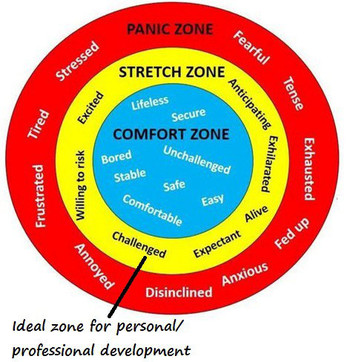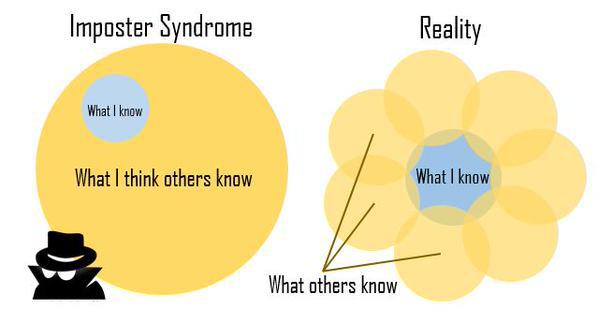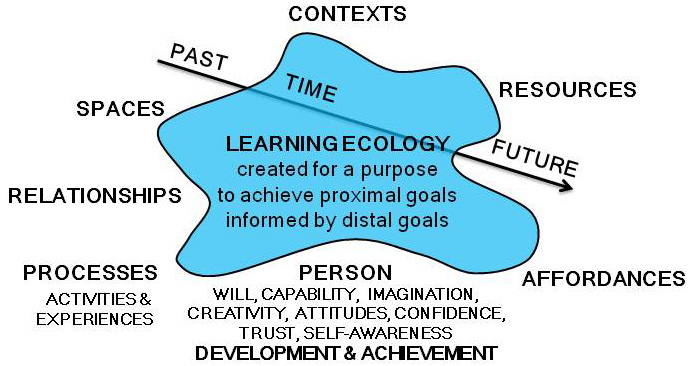

Surrounding the comfort and the stretch circles is the Panic Zone. This gives the model a dystopian feel but I found the concept reassuring. However familiar you are with the symptoms of Imposter Syndrome, or have taken time out for meaningful self-reflection, it’s easy to take it personally if something doesn’t go quite as planned. Senninger gives us permission to feel a range of negative emotions and – more importantly – to contextualise them within the bigger picture of change.

Sources
1) Jackson N J (in press) Exploring Learning Ecologies Chalk Mountain https://www.lulu.com/
to be published March 2016. Also March Issue of Lifewide Magazine
2) 1 Senninger, T. (2000). Abenteuer leiten – in Abenteuern lernen. Münster/Germany: Ökotopia. Learning Zone Model. [on-line]
http://www.thempra.org.uk/social-pedagogy/key-concepts-in-social-pedagogy/the-learning-zone-model/
Image credits
Dont Panic http://www.tetchi.ca/dont-panic/
Imposter Syndrome https://www.sfu.ca/dean-gradstudies/events/impostersyndrome.html
Sue Watling is an Academic Technology Enganced Learning Advisor at the University of Hull. This post is adapted from her blog post
https://digitalacademicblog.wordpress.com/2016/02/26/panic-buttons-and-transitional-states-of-being/


 RSS Feed
RSS Feed
